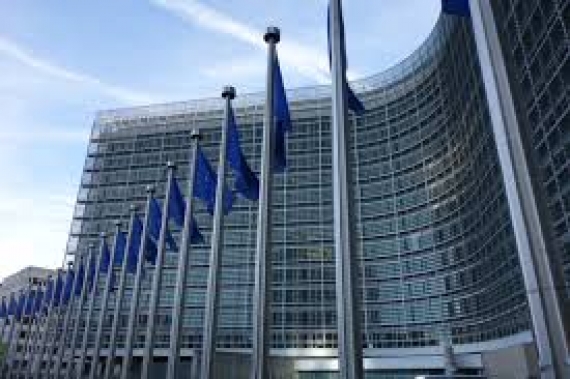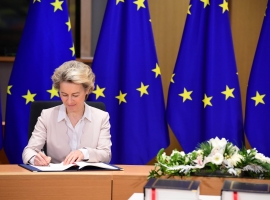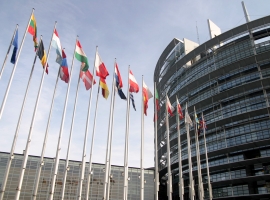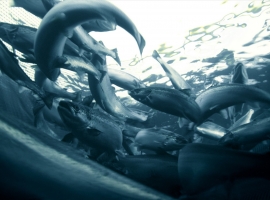
Euro zone finance ministers will launch a debate on the future of the single currency area on Friday that could lead to much deeper integration of their 19 economies and the creation of a euro zone finance minister and budget.
They will then be joined in the Estonian capital Tallinn by finance ministers and central bank governors from the rest of the European Union for informal talks on Friday and Saturday. A deepening of the Economic and Monetary Union (EMU) will be one of the main topics on their agenda.
The discussions are part of a renewed drive, led by Germany and France, to revamp the bloc after the sovereign debt crisis shook its foundations and Britain's vote to leave the EU dealt a blow to the wider European Union.
Berlin and Paris agree it would be good to have a joint pool of money specifically for countries using the euro. There should also be a person looking after such a budget, running a euro zone treasury -- a euro zone finance minister.
But the two biggest euro zone countries and the EU institutions differ on how big that budget should be, where to find the money and how the funds should be spent.
They also differ on what powers a future finance minister for the whole of the euro zone should have. Germany would like such a figure to have large powers, including a veto on national budgets and monitoring polices. But others say this would be difficult to reconcile with the prerogatives now accorded to the European Commission under EU treaties.
Germany favors a small budget, known in EU jargon as a "fiscal capacity" or "stabilization function." It would rather not see any permanent transfers. For Berlin the budget could help finance structural reforms and maybe support investment.
France is more in favor of a larger budget, euro zone officials say, that would act as a tool to help deal with economic cycle downturns, for instance by helping with unemployment benefit payments in countries in recession.
Officials say Paris would be prepared to have a dedicated tax stream in the euro zone to finance such a budget.
Germany has mentioned the possibility of using money from the euro zone bailout fund, the European Stability Mechanism (ESM), but in general the issue of financing for the budget is wide open and there are no firm proposals.
BUDGET MAY MEAN SOVEREIGN INSOLVENCY MECHANISM
The head of the euro zone bailout fund, Klaus Regling, wrote in a speech to be delivered this week at the Eurofi conference in Tallinn that a euro zone budget would be useful only as a tool to counter asymmetric shocks -- for instance a sudden problem in one euro zone country, rather than the whole bloc.
Regling suggested the size of such a euro zone budget could be 1-2 percent of euro zone Gross National Product, and could be accumulated over a number of years. This would be roughly the same as the size of the whole budget of the wider EU, which also amounts to about 1 percent of EU annual Gross National Income.
"The framework for such limited fiscal capacity could be designed to prevent moral hazard and free-riding," he said.
In future euro zone reform, France emphasizes the need for more risk-sharing and more financial solidarity among euro zone governments, while Germany stresses the need for more risk reduction and more fiscal discipline first.
Operating a joint budget, with or without permanent transfers, would force the euro zone to ensure higher fiscal discipline. This has been hard to impose with current, complex EU rules and a political approach to their implementation.
Some, like Slovak Finance Minister Peter Kazimir, are proposing to replace EU rules with market pressure. This could be done by introducing a sovereign debt restructuring mechanism, Kazimir said, which would focus markets on the risks of investing in government bonds.
But to complicate matters more, such a sovereign insolvency mechanism would have to be introduced in parallel with a change in the way risk is calculated for government bond portfolios in banks across the euro zone.
This would be a very difficult task because it would have to be done in a way that would not lead to a panic sell-off of some bonds or market panic that one of the sovereigns could default which would become a self-fulfilling prophecy, officials said.
European Union leaders may give first directions for further work on the new structure of the euro zone when they meet for their regular summit in December, officials said.
But if the formation of a new German government after the elections on September 24th drags on for a long time, the leaders' discussions may be postponed until March, they said. (Reuters)
Source: www.businessworld.ie

















